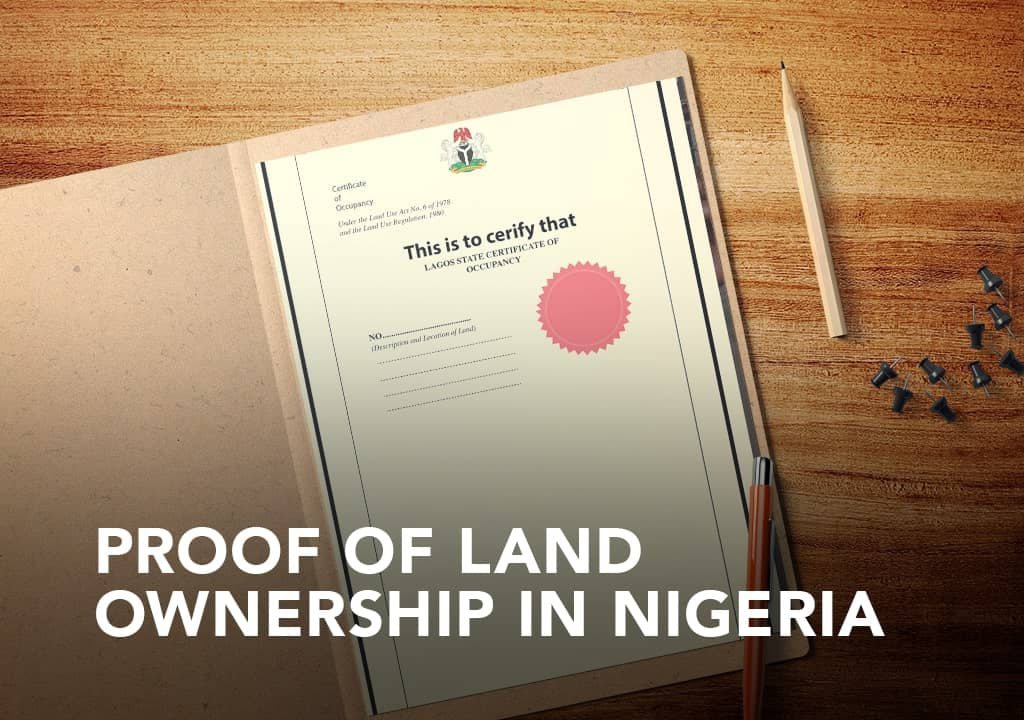Acquiring land in Lagos has remained one of the most sought-after investments in Nigeria, driven by the city’s ever-expanding population, commercial potential, and real estate appreciation. Whether it’s for personal residence, long-term investment, or business development, buying land in Lagos can be highly rewarding. However, as promising as the opportunity may appear, the process is far from a simple exchange of cash for property. The real battleground lies in documentation, and in Lagos, where land disputes are a regular occurrence, your papers are your only armor.
In Nigeria’s bustling commercial capital, navigating land acquisition requires more than interest and cash, it demands due diligence, legal knowledge, and a firm grasp of the documents that confer real ownership. Failure to secure the right documents has cost many unsuspecting buyers their funds and peace of mind. From government-acquired lands to communal lands, excised plots, and committed lands, the categories are complex and often misunderstood. For this reason, every prospective landowner must insist on proper documentation, not just as a matter of formality but as a legal necessity.
A key starting point is the Survey Plan. This technical document outlines the location, boundaries, and dimensions of the land in question. Beyond identifying the plot, a proper survey plan, when submitted for charting at the Office of the Surveyor General, helps determine whether the land falls within government-acquired or committed areas. Lands designated as committed or under acquisition by the Lagos State Government are not available for private ownership unless they’ve been officially excised. A verified survey plan is crucial in protecting a buyer from falling into such traps.
Next in line is the Deed of Assignment, which legally documents the transfer of ownership from the seller to the buyer. It details the specifics of the transaction, including the identities of both parties, the size and description of the land, and the history of ownership. This document must be drafted by a qualified property lawyer, signed by both parties, and submitted for Governor’s Consent to fully legalize the transfer. A deed without proper consent is like owning a car without changing the logbook, disputed ownership can arise anytime.
Speaking of consent, the Governor’s Consent is one of the most misunderstood but vital aspects of land purchase in Lagos. Under the Land Use Act, every subsequent transaction on land that already has a Certificate of Occupancy must be consented to by the Governor of the State. Without it, even a validly signed Deed of Assignment remains incomplete in the eyes of the law. It is this consent that finalizes the legal transition of ownership.
The Certificate of Occupancy (C of O), often referred to as the gold standard in property documentation, signifies that the Lagos State Government has formally granted occupancy rights to the landowner for a period of 99 years. Lands with a C of O are considered regularized and are often easier to transact, use as collateral, or develop without interference. However, buyers must conduct thorough verification with the Ministry of Lands to confirm that the C of O presented indeed pertains to the land being sold.
In cases where the land was previously acquired by the government but later released to the original community, the Gazette comes into play. This official publication is proof that the land has been excised and can now be sold legally by the indigenes. Buying land backed by a Gazette is safer than undocumented transactions but slightly less secure than one with a C of O. Nevertheless, it remains a recognized and enforceable title in Lagos real estate.
The transaction’s financial aspect is supported by the Purchase Receipt, which proves that payment was made. Though not a title document on its own, the receipt helps corroborate ownership and serves as supplementary evidence alongside other documents. It typically includes the amount paid, the date of payment, and signatures of both parties.
In certain transactions, especially those involving flexible payment arrangements, a Contract of Sale may be executed. This agreement outlines the terms of the purchase, timelines, and any agreed conditions before full transfer takes place. While it is not a substitute for a Deed of Assignment, it provides legal protection and structure during the process.
For buyers engaging with indigenous families or communities, a common occurrence in Lagos, it is essential to obtain Family or Community Consent. This involves signatures or formal approvals from all principal family members or community heads. Skipping this step has led many to encounter “omo onile” problems, instances where other family members later contest the sale, sometimes with force or litigation. A properly documented family agreement helps avoid such confrontations.
For those purchasing land through government-backed schemes or allocations, the Government Allocation Letter is the primary proof of ownership at the early stage. Issued before the C of O, this letter clearly states the plot being allocated, to whom, and under what conditions. It is common in areas like Lekki, Ibeju, and other state-developed zones.
In a city as dynamic and unpredictable as Lagos, documentation is not just a formality, it is your security. Relying solely on verbal assurances or community arrangements without legal backing is a gamble that often ends in regret. Every land transaction must involve verification through the Lagos State Land Registry, the use of certified real estate professionals, and a refusal to proceed without complete and validated documents.
For prospective land buyers, the advice remains constant: don’t just buy land, buy peace of mind. Secure the right documents, work with knowledgeable professionals, and verify every claim. The Lagos real estate market is full of potential, but only the diligent and well-informed truly reap its benefits.

